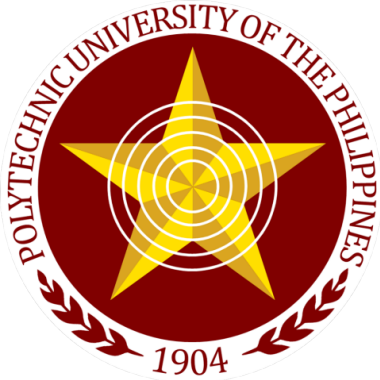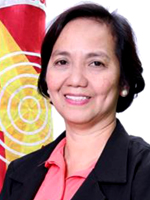


WELCOME AACCUP ACCREDITORS




Computer Engineering is a four-year degree program that deals with the study of computer systems. The curriculum covers both software and hardware and develops the student's ability to analyze computer systems, designs, construction of electronic equipment and its peripherals. Since computer science is directed to the theory and technology of computation, the curriculum does not specialize along traditional lines that divide hardware and software, systems and applications, or theory and experiment. Rather, a unified approach to the design and analysis of computers and of computing structures is employed. This background prepares the student for placements as computer engineers in government industry. It also qualifies them for related job with computer manufacturers and consulting firms as systems programmers as well as application programmers with scientific, research, and business organizations. The ethical considerations with respect to the profession is an important component of the program of study.
The BSCpE curriculum has four (4) tracks of specialization namely: (a) Computer Network Engineering; (b) Machine Learning; (c) Big Data; and (d) System Development. It is designed to prepare graduates in accordance with the institutional and program outcomes.
The curriculum has a total of 193 credit units comprising of 131 units of Technical course. These technical courses includes 12 units of mathematics, 8 units of Natural/Physical Sciences, 7 units of Basic Engineering Sciences, 8 units of Allied Courses, 86 Professional courses (including the OJT), 10 units of Cognates/Electives.
The non-technical courses in accordance with CMO 20 s. 2013 - The New General Education Curriculum consist of 62 units of general education courses distributed as follows: 36 units of core courses, 9 units of GEC electives, and 3 units of Life and Works of Rizal. The new GEC also includes 8 units of Physical Education (PE), and 6 units of National Service Training Program (NSTP).


College of Engineering,Dean
Welcome to the Polytechnic University of the Philippines College of Engineering. Here you will find a community of learners, leaders, and thinkers who are dedicated to addressing some of the world’s most complex engineering challenges. A large part of our success comes from our top-notch faculty members, university officials, employees, researchers, extensionist and students. The challenge of this pandemic gives us an opportunity to design and develop the face-shield and share it to the front liners and essential workers in the community. Some of projects or accomplishments includes the Flexible Online Learning using MSTEAMS & other software platform, Instructional Materials (IMs) Bayanihan sa Agsikapan, Community Pantry, Design of Triage, Curriculum development and enrichment, webinars on Professorial Chair Holder Lecture Series (PCHLS), International Webinar in Engineering, Science and Technology (IWEST), Annual Research Award (ARAW) and Virtual Alumni Homecoming. The College’s commitment to Sustainable Engineering is perhaps most visible in the Bachelor of Science in Computer Engineering (BSCpE) program. Active collaboration industry partnership is the key to our resiliency. Our strong alliance to industry ensures relevancy in classrooms and research labs. We have systems for our graduates like the “Balik-Sintang Paaralan” and as member of the Curriculum Advisory Board. We are very thankful to the ACCUPP Accreditors for sharing their time and expertise to evaluate our programs. This accreditation exercise will promote teamwork, high self-steem and boosts our energy levels. We know for a fact that result of this undertakings is expressed in numbers, but the marks garnered by the people behind those numbers are indispensable.


College of Engineering, Chairperson
The unyielding COVID – 19 have caused immense and abrupt changes in our lives. As we learn to embrace a “new and better normal” in the academe, it is imperative for us to advance schemes that will minimize our vulnerabilities whilst still working efficiently even in the midst of pandemic.
The Flexible Technology Enhanced Learning (FlexTel) was developed to address the needs of adapting to the current situation. By seamlessly integrating technology to the transmission of learning, Flextel proves to be a key in our institution’s delivery of inclusive and equitable quality education aimed at producing engineers, scientists and professionals who will serve as catalysts for sustainable growth and development.
As we submit our program for online survey and visit, we thank and commend the Accrediting Agency of Chartered Colleges and Universities in the Philippines (AACCUP), Inc. for lending expert accreditors, and appropriating time to review our Bachelor of Science in Computer Engineering program. We welcome this exercise to continuously improve the BSCpE program and strengthen our resolve of being the National Polytechnic University.
Mabuhay Sintang Paaralan!